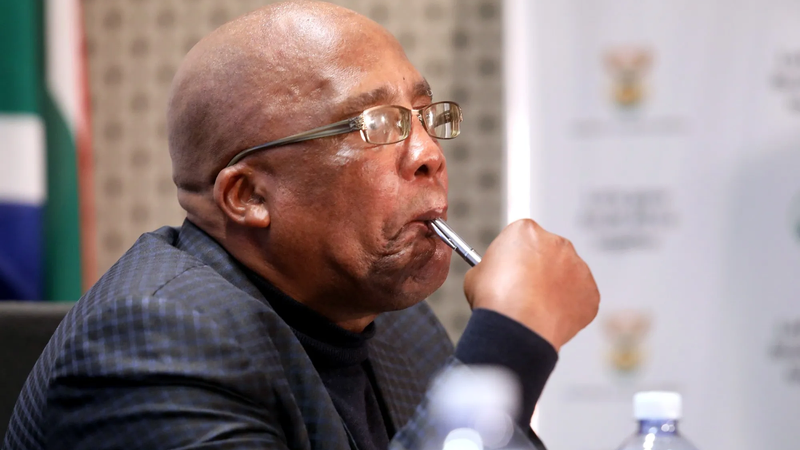Health Minister Dr. Aaron Motsoaledi has bluntly told Parliament that the United States does not “owe South Africa a cent” in the wake of President Donald Trump’s decision to slash $440 million in funding for South Africa’s HIV/AIDS treatment program.
Motsoaledi’s comments came as he addressed MPs during a heated debate on the implications of Trump’s funding cuts, which have threatened to disrupt the country’s antiretroviral (ARV) treatment program, potentially risking the jobs of 15,000 healthcare workers. The funding cut, part of the US President’s Emergency Plan For AIDS Relief (PEPFAR), could lead to the collapse of vital healthcare programs in South Africa.
Trump’s decision has sparked outrage in South Africa, particularly as it comes at a time when the country faces mounting socio-economic challenges. However, Motsoaledi insisted that the country must take responsibility for its own healthcare crisis, urging South Africans to “stand on our own” in light of the funding loss.
“Trump doesn’t owe us a cent, and for that reason, we need to stand on our own,” said Motsoaledi, emphasizing that no government or foundation was waiting on Trump’s decision before continuing to support South Africa’s programs. He also outlined the country’s proactive efforts to seek alternative funding through partnerships with international organizations like the Clinton Health Access Initiative, the Gates Foundation, and the UK’s Foreign and Commonwealth Development Office.
During the debate, Economic Freedom Fighters (EFF) leader Julius Malema blasted the US decision, alleging that the funding cuts were a direct retaliation for South Africa’s moral stance in support of Palestine and against Israel. Malema condemned the US’s actions as part of a broader imperialist agenda and dismissed the growing calls by right-wing groups for foreign funding as attempts to exploit US imperialism for their own political motives.
Motsoaledi also took the opportunity to address the National Health Insurance (NHI) and suggested reviewing subsidies for private medical schemes, questioning whether it was fair for well-off South Africans to receive such heavy subsidies during a time of crisis.
The debate has intensified discussions around South Africa’s reliance on foreign aid, its commitment to land reform, and the future of healthcare funding in a challenging global landscape. With tensions growing over international foreign policy and domestic issues like land reform, the country faces tough decisions ahead regarding its self-sufficiency in critical areas like healthcare and economic development.
